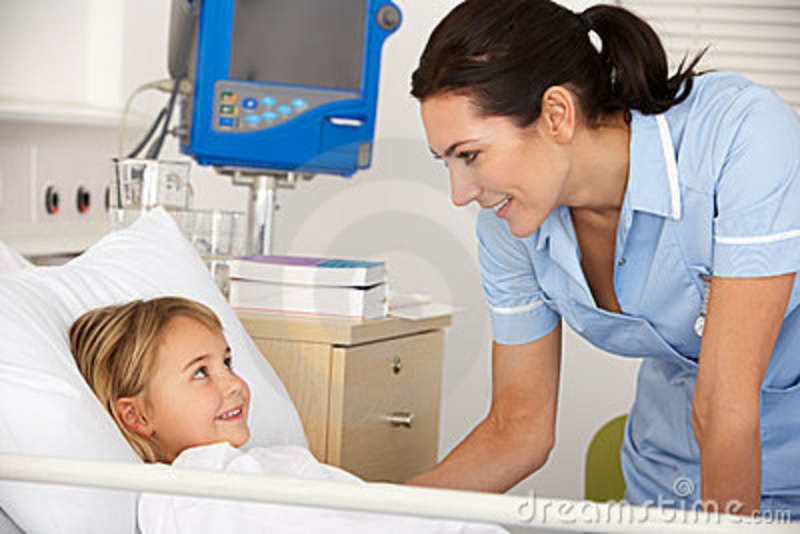H1n1 Influenza In Children
What is H1N1 influenza?
Influenza H1N1 ( swine flu ) is an infection caused by a virus . H1N1 influenza is easily spread when an infected person coughs , sneezes , or has close contact with others . Your child may be able to spread H1N1 flu to others for 1 week or more after the onset of signs or symptoms .
What are the signs and symptoms of influenza H1N1?
They are more likely severe symptoms in children younger than 5 . They are also more likely to have children who have heart or lung disease , or a weakened immune system . The signs and symptoms include the following:
- Fever and chills
- Headaches , body aches , ear aches , and muscle or joint pain
- Dry cough , runny or stuffy nose , and sore throat
- Loss of appetite , nausea , vomiting , or diarrhea
- Fatigue
- Rapid breathing , and difficulty in breathing , or chest pain
How is the diagnosis of avian influenza H1N1?
Child care will examine your child. I tell him if your child is suffering from health problems such as epilepsy or asthma . I tell him if your child is about sick people or traveled recently . The collection is a sample of fluid from the nose or throat and your child tested for influenza virus H1N1.
How to deal with influenza H1N1?
Most healthy children get better within a week . Drugs used to treat H1N1 flu include :
Acetaminophen : This medicine reduces pain and fever . You can buy acetaminophen without doctor ordered . Ask how much and how often to give it to your child. Follow the directions . Acetaminophen may cause liver damage if not taken correctly.
NSAIDs : These drugs reduce pain and fever . You can buy painkillers without a doctor. Ask your child care medicine that is right for your child, and how much to give. Give as directed . NSAIDs can cause stomach bleeding or kidney problems if not taken correctly.
Anti- Virus: This is given to fight an infection caused by a virus .
What are the risks of avian H1N1?
H1N1 flu can cause serious health problems or life-threatening in some children . If your child is not treated for influenza H1N1, has signs and symptoms may worsen . He may have a high temperature and get dehydrated. If he has other health problems , such as asthma or epilepsy , these problems may be worse. The infection spreads to other parts of the body , such as the ears , and throat , or sinuses. He may get pneumonia and bronchiolitis , or croup , and he may not be able to breathe . He might get encephalitis ( brain disease ) or meningitis ( swelling of the brain , brushes ) . He may have seizures. He may have swelling of the heart or severe injury .
How can I manage my child's symptoms ?
You have the rest of your child : Make sure that your child gets enough rest and sleep . Rest and sleep may help him to get better and faster.
Give your child plenty of fluids : Ask your child care how much fluid your child should drink every day , and which fluids are best for him . This can help to prevent dehydration .
Use a cool mist humidifier : This can be used in your child's bedroom to increase air humidity . May make it easier for your child to breathe .
How can I help prevent the spread of avian H1N1?
Have your child wash his hands frequently : Do you have to use soap and water or hand sanitizer gel when there is no soap and water available . Teach him not to touch the eyes , nose and mouth , or unless he has washed his hands first.
Teach your child to cover his mouth when he coughs or sneezes : Do you have a cough into a tissue or shirtsleeve him so he does not spread germs.
Clean common elements : fair play , and table surfaces , door handles and light switches with germ-killing cleaner . Not sharing towels , silverware , and dishes with people who suffer from the disease. Wash sheets , towels , silverware , and dishes with soap and water .
Wear a face mask : wear a mask to cover your mouth and nose when you are near your sick child . This can reduce the risk of avian influenza H1N1. Ask caregivers where to buy masks used once .
Keep the child at home if he is sick : Keep your child away from others as much as possible while he is recovering .
Influenza vaccine : This vaccine helps to prevent influenza ( flu ) . Everyone older than 6 months of age should get a flu vaccine each year . Get the vaccine as soon as it is available , usually in October or November of each year .
